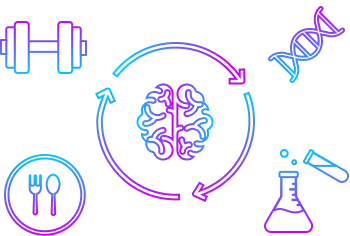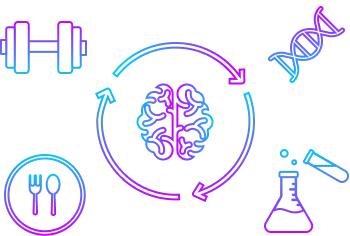CAD Risk Assessment
We leverage an AI model to dynamically predict CAD risk as patients' conditions evolve. Our approach integrates data from a comprehensive, medical-grade Internet of Things (IoT) system, which includes medical devices, smartwatches, mobile apps, and cloud connectivity. This system is also seamlessly connected with Hospital Information Systems (HIS), ensuring a robust and continuous flow of relevant health data to support precise and timely CAD risk predictions.

Inherited CAD Risks
Our solution uses 5mL of blood plasma to conduct DNA tests on 500 genetic variants, determining the baseline risk for CAD as a Genetic Risk Score. Based on multiple clinical studies, our test offers a reliable and comprehensive assessment of CAD risk, enabling precise and personalized patient care.
Lifestyle Induced
CAD Risks
To predict lifestyle-induced risks, we leverage evidence-based research to understand our users' metabolism. By interpreting demographic information, macro and micro nutritional intakes from diet, and metabolic equivalent tasks (METs) from physical activities, we provide a comprehensive and scientifically grounded assessment for risk of heart attack recurrence.


CAD Risks
Prediction Model
Our AI model, trained on a dataset of 3,200 CAD patients predominantly of Asian ethnicities, quantifies CAD risks and provides quantitative benefits for lifestyle changes. Integrated into our medical IoT system, this AI model functions as a Software as a Medical Device (SaMD), ensuring compliance with medical regulatory standards.
Arrhythmia Detection
We use a wearable biosensor to acquire ECG data for detecting arrhythmias and diagnosing atrial fibrillation (A-Fib). The biosensor transmits ECG data wirelessly via Bluetooth to Health BETA’s mobile app, which then sends the data to a remote cloud for display, storage, and analysis. This continuous ECG acquisition is ideal for detecting asymptomatic conditions, syncope episodes, and A-Fib events occurring during sleep.




